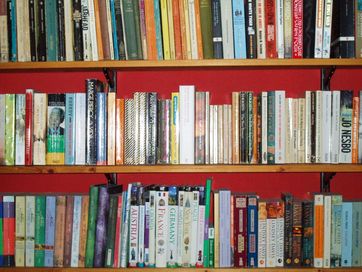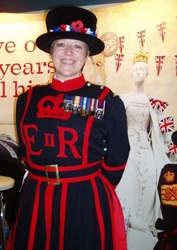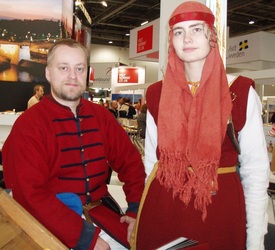
My most treasured boot-sale book purchase, decades back, must definitely be The Year of Grace – Passages chosen and arranged to express a mood about the human and divine by Victor Gollancz.
I've read through this book many times since, just working through it slowly, one or more quotes each bedtime, and my copy is literally falling to bits now. I have marked up my favourite passages (much to the abhorrence of my husband, who hates to write in books!) and copied many of them out into a notebook of spiritual readings which I keep for times when I need inspiration, comfort or just a moment of calm reassurance.
My favourite part of the book, and one which I always come back to, is the section of stories of great kindness in the face of great cruelty – Third Part: The Relation of Man to Man: X. It is wonderfully moving. I quote (with thanks to the Gollancz family):
The following is an extract from a letter received from an Austrian Jew now in the British Pioneer Corps in the BLA. He is attached to a hospital receiving German wounded. He has been for nine months in the concentration camps of Dachau and Buchenwald: he had been hung by the wrists to a tree and had once nearly died of gangrene, Jews at that time not being allowed medical attention in concentration camps. He also has reason to believe that his old mother was taken to Poland two years ago:
"This is being written in the solitude of a ward in which I am guarding wrecked members of the Herrenvolk. It is so strange a situation that I can hardly describe what I am feeling. Loneliness is perhaps the only word for it. These are men who set out to conquer the world, and they and their kind have done unspeakable things to me and my kind, and I am supposed to hate them with all my strength, and would be right to do so according to recognised standards of human behaviour. But I cannot hate, or is it that in the face of suffering hatred is silent? So it happens that the guard is turned into a nurse, and if a man, from losing too much blood, goes out of his mind and stammers incoherently, I have to talk him to sleep again. And it sometimes happens that men try to hold my hand when I have helped them. That makes me feel lonely.
“Only a few lines. It is midnight, and I am going off duty after having had a busy time with that man who lost so much blood that he went crackers. He had an operation and a blood transfusion, and I was the only one able to talk to him. In the end he obeyed my orders instantly with ‘Jawohl, Herr Doktor!” Once he said 'Sie sind so ein feiner Mensch’* and then ‘Sie sind zu mir wie ein Vater'**. What shall I make of that? I can only draw one conclusion, which is that I am a terribly bad soldier and I am somehow glad about it.
"The man I wrote about has died. The doctors fought for his life as if he were a celebrity.”
*You are a good man!
**You are like a father to me
LEFT NEWS, November 1944
My husband knows that gifts of book-tokens will always bring a smile to my face. I have one from my birthday I’ve been meaning to spend, and have just ordered another, more modern offering on the subject of love in response to injury: I Shall Not Hate: A Gaza Doctor’s Journey on the Road to Peace and Human Dignity by Izzeldin Abuelaish. I hope it will increase my understanding.







 RSS Feed
RSS Feed
